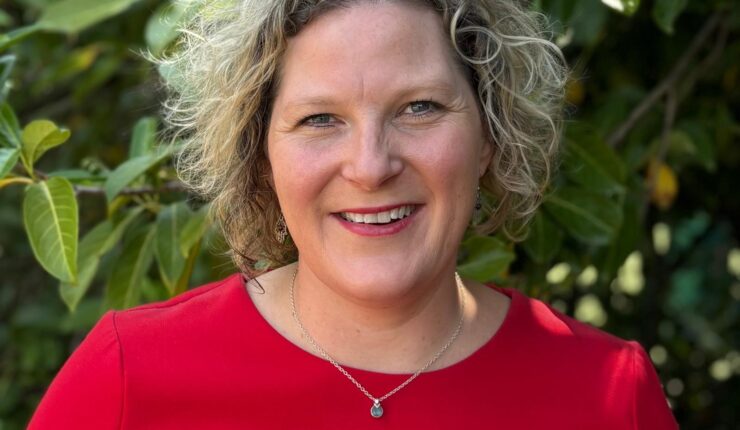Today the Government has published Youth Matters: Your National Youth Strategy – a long-awaited, ten-year plan shaped by more than 14,000 young people.
For youth workers and organisations across the country, this is a pivotal moment. Following fifteen years of devastating cuts, the Government has finally recognised the essential role of youth work in young people’s lives.
Our CEO, Rosie Ferguson OBE, reflected:
“The National Youth Strategy is a landmark moment. It rightly recognises youth work as the glue binding a fragmented system together and gives young people a stronger voice than ever.”
“The Government’s own research shows the stark reality young people have faced as vital support was stripped away. Fifteen years of cuts have left deep scars – this Strategy is an important first step towards healing, but true recovery will require sustained commitment.”
“Despite facing many challenges, young people have shown extraordinary resilience: supporting friends, leading change in their communities, and helping design the solutions announced today. They shaped this strategy from the outset – and they must now be equal partners in delivering it.”
From youth voice to youth power
UK Youth was commissioned by the Government – as part of a national consortium with Volunteering Matters (co-leaders of the #iwill Movement), My Life My Say and Savanta – to co-design the groundbreaking Deliver You campaign alongside youth collaborators. The campaign ensured that youth power sits at the heart of the Strategy.
The Strategy is accompanied by an additional report, ‘Youth Matters: State of the Nation’, which highlights the challenges young people have identified as the most pressing in their lives.
Young people quoted in the strategy were very clear: “For us, the Strategy will have made a difference if young people’s mental and physical health outcomes have improved and it will truly have succeeded if we can look at the next generation and say they have hope and excitement for their future.”
Significant new investment
Youth organisations have been calling for meaningful investment into life-changing youth work services. Today’s announcements reflect early steps towards repairing the damage of previous cuts:
- £60m Richer Young Lives Fund to support high-quality youth work in underserved communities.
- £350m expansion of the Better Youth Spaces Fund, including up to 250 new or refurbished youth facilities and equipment for around 2,500 organisations.
- £15m to recruit and train youth workers – a vital recognition of youth work as a skilled, life-changing profession.
- £5m to strengthen local youth sector partnerships and improve digital infrastructure.
These sit alongside previously announced investment, including:
- Youth Guarantee: Investment of £820million across three years to deliver a Youth Guarantee supporting 16- to 24-year-olds seeking employment, with guaranteed paid work for young people aged 18-21 on Universal Credit who have been looking for work for 18 months.
- Enrichment investment: Aims to boost young people’s wellbeing, personal development, and essential life skills through a new £22.5 million programme of support around the school day in up to 400 schools.
- Holiday Activities and Food (HAF): More than 600 million across three years to provide funding for local authorities to coordinate and provide free holiday provision for young people, including healthy food and enriching activities. The extension of HAF had previously been welcomed by UK Youth earlier this year.
- Young Futures Hubs: Government has previously committed to launching a network of 50 Young Futures Hubs by March 2029 as part of a local transformation programme of £70 million, providing access to youth workers and other professionals, supporting their wellbeing and career development and preventing them from harm. The first eight hubs to be operational by March 2026 are in Birmingham, Leeds, Manchester, County Durham, Nottingham, Bristol, Tower Hamlets, and Brighton and Hove.
This level of investment is welcome and badly needed. As the Government’s own research shows, fifteen years of cuts have left deep scars in communities and in young people’s lives. Today must mark the beginning of long-term, not one-off, change.
Youth workers recognised as “the glue”
For the first time, the Strategy explicitly identifies youth workers as the people who hold a fragmented system together. This is a major shift and a recognition that the sector has fought hard for.
Youth workers’ vital contribution to improving young people’s sense of belonging, safety, wellbeing, and empowerment are highlighted throughout the National Youth Strategy. The announcement of £15 million of dedicated funding to strengthen and develop the youth sector workforce underlines the transformative role youth workers play in young people’s lives.
The additional £5 million allocated by Government to support youth organisations locally and regionally over the next three years further highlights the essential contribution of grassroots youth organisations to communities and the importance of sustainable infrastructure to support them locally, regionally, and nationally.
We are particularly pleased to see a commitment to reviewing the Statutory Duty on local authorities to provide a ‘sufficient’ youth offer. This raises the exciting potential of a stronger statutory protection for youth services in the future.
Youth work is essential to community cohesion
Trained and trusted adults such as youth workers are identified in the National Youth Strategy as essential to helping young people engage with their communities and feel a sense of belonging.
The research that underpins the Strategy highlights a lack of belonging remains a significant challenge for young people growing up. The Strategy emphasises that simply having a trusted adult who listens can be transformative for a young person’s future prospects. A trusted adult can change everything.
Enrichment and youth work are essential, not luxuries
The Strategy highlights the impact of cuts to youth services and enrichment opportunities since 2010, and commits to halving the participation gap in enrichment activities between disadvantaged young people and their peers by 2035.
It draws on the Enrichment Framework to promote a high-quality offer spanning arts and culture, outdoor learning, sport and civic engagement. This will be particularly important following the Government’s commitment earlier this year to lower the voting age to 16 for all elections, as highlighted by UK Youth.
However, the Strategy misses the opportunity to explore Outdoor Learning in more depth, despite its vital role in young people’s development. It does, however, commit to an Access to Nature Green Paper focused on supporting outdoor learning.
Clearer routes between education and employment
The Strategy acknowledges the urgent need to support the nearly one million young people currently not in education, employment or training (NEET) – an issue that UK Youth has worked extensively on. Linking the Youth Guarantee to the Strategy’s commitments shows a welcome indication that Government is taking youth employment seriously.
The Strategy commits to preparing young people for life beyond education and expanding opportunities to enter the workforce through stronger partnerships with employers to grow apprenticeships, internships and work experience.
Looking ahead to the future of work, the Strategy highlights the challenges posed by Artificial Intelligence (AI) and automation. The TechYouth strand of the £187 million TechFirst programme aims to equip young people with digital and AI skills throughout their schooling.
What’s Still Missing?
Most funding announced spans three to four years – far short of the Strategy’s ten-year ambition. Without sustained investment, the Strategy risks becoming another short-term initiative rather than a generational turning point.
Rosie Ferguson OBE said: “A strategy is only a promise. Young people will judge success by what is delivered, not what is written. Today’s announcements are a welcome down-payment, but long-term change demands long-term investment.”
“To put this in perspective: the strategy’s flagship £350m commitment over four years for youth spaces is equivalent to the Government’s spending on national debt interest in a single day.”
The Local Youth Transformation Pilots will test place-based approaches, but there is a real risk of postcode lotteries. Current disparities in local authority spend already mean access to youth work varies dramatically. The Strategy promises a welcome review of the statutory duty for youth services – but is silent on how Government will hold local areas accountable in the meantime.
To truly deliver for young people, national ambition must be matched by clear local responsibilities and transparent oversight.
Initial Conclusions
We will be providing more detailed insights into the National Youth Strategy over the coming weeks and will continue to share our analysis with the sector and young people.
- Sign up to our webinar on 6 January to hear more here.
- You can also share your thoughts on the National Youth Strategy and key messages you would like us to pass on to politicians and civil servants here.
- Send a letter to your local MP asking for their support in local implementation. You can download a template here.
- DCMS will also be running a ‘Youth Matters’ webinar on 16 December.
We believe the National Youth Strategy offers genuine opportunity but also a clear challenge. As a sector, we must work together to ensure young people are not just consulted but are equal partners in designing, delivering, and holding the government to account for delivering these ambitious promises.
Youth work is life-changing. Today, Government has recognised that. Now it must deliver.
10 December 2025
Power of Youth Work Finally Recognised by Government’s National Youth Strategy
BlogPage 1 of 22








